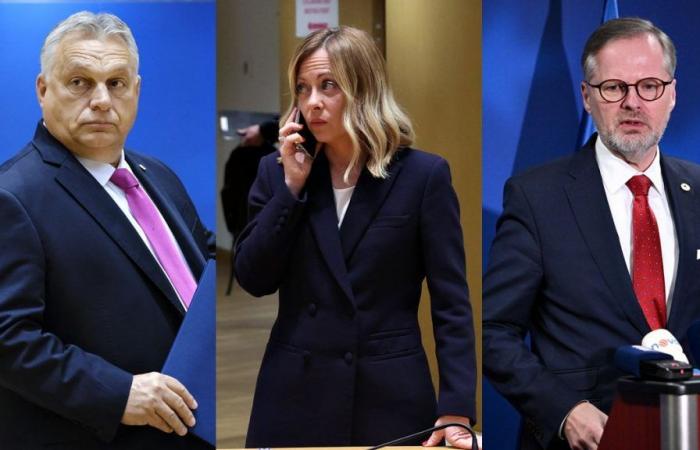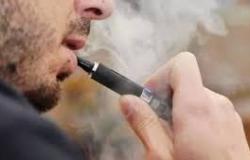Viktor Orbán, Giorgia Meloni and Petr Fiala want to have a greater say in the allocation of EU leadership posts. But the numbers work against them
ADVERTISING
Who should lead the European Union in the next five years? Ten days before the elections, the question remains unanswered.
A informal summit held on Monday he failed to make the necessary change, despite the presence of a trio of candidates at command posts: Ursula von der Leyen for the Presidency of the European Commission, António Costa for the Presidency of the European Council e Kaja Kallas for the position of High Representative for Foreign Affairs and Security Policy.
On paper, the selection meets all the requirements: politically heterogeneous, geographically mixed and gendered. It’s also about one group of well-known faces who have dealt with the leaders of the member countries in the last five years and who are unlikely to be able to reserve any big surprises.
However, there was no agreement. A series of bilateral and trilateral meetings between the three main parties – the European People’s Party (EPP), the Socialists and the Liberals – helped bridge the gap, but stranded due to the maximalist demands of the EPP.
A summit is scheduled for June 27 for a new attempt.
The disappointment of Orbán, Meloni and Fiala
Meanwhile, the recriminations began. Some leaders have expressed their disappointment and frustration for the way the negotiations were conducted. “The will of the European people was ignored in Brussels today,” the Hungarian prime minister said Viktor Orbán at the end of Monday’s meeting.
Orbán attacked the EPPwho largely won the elections, for having shared positions with the socialists and liberals, who came second and third respectively. “They don’t care about reality,” Orbán wrote. “We must not be naive: they will continue to support immigration and send even more money and weapons to the Russia-Ukraine war.”
Tuesday on Corriere della sera published an article describing another leader’s anger: Giorgia Meloni. According to the newspaper, the prime minister, who has positioned herself as kingmaker, she resented being left on the sidelines while the bilaterals were underway and refuses to accept a “canned” selection without having first discussed the election results in a “serious and in-depth” way.
Then, a third leader entered the fray to express his grievances: Petr Fialaprime minister of the Czech Republic, who made an unlikely connection between his country’s geography and its claim to power.
“The rules are clear: appointments at the top of the European institutions must respect political and geographical interests,” Fiala wrote on social media. “The Czech Republic is at the center of Europe – our future portfolio must reflect this.”
Far-right forces remain a minority
The complaints expressed by Orbán, Meloni and Fiala derive from a common trait that unites them: none of them belong to the three pro-European families – the EPP, the socialists and the liberals – who dominated Brussels for decades.
Although their influence is no longer what it once was, the “grand coalition” still holds the majority in the European Parliament And controls the European Councilwith around 75 percent of the heads of state and government around the table.
In their opinion, these numbers are strong enough to maintain the traditional trading game which provides that leadership positions are assigned to the EPP, the socialists and the liberals based on their electoral results. Although this way of working has been criticized as a “backroom deal” lacking transparency, it has ensured stability and predictability in the bloc’s decision-making cycle.
But for Orbán, Meloni and Fiala, winds of change are blowing.
The increase in consensus for the right-wing and far-right parties in the June elections it is, for them, the dawn of a broader review of the Union’s long-standing rules, starting from the distribution of top roles. According to their thinking, their strengthened voices should be heard and recognized with greater authority.
“The result of the European elections is clear: the right-wing parties have strengthened, the left and the liberals have lost ground,” Orbán said. “We will not give up on this! We will join forces with the European right and fight against pro-immigration and pro-war bureaucrats“.
Arithmetic, however, paints a rather different picture.
Although the nationalists have made inroads, they did not achieve the “massive surge” that polls had predicted. In the next legislature they will be more numerous, but they will remain a minority. The “grand coalition” will have a majority of over 400 seats out of 720 and that could exceed 450 with the addition of the Greens, more than enough to steady the boat.
A far-right supergroup would not change the balance
By contrast, the far-right groups European Conservatives and Reformists (ECR) and Identity and Democracy (ID) together they will have over 130 seatswhich could increase if some non-subscribed members join their ranks.
In the European Council, where political decisions are taken at the highest level, the numbers are clearer: the ECR has two representatives – Melons and Vial – and the Id has none. Orbán is not affiliated with any parliamentary group and relies on the ECR. His entrance, however, is opposed by pro-Ukraine members of the groupincluding Fiala’s party.
Aware of their fragmentation, the exponents of the Id they promoted talks to form a supergroup of the radical right to amplify their weight. But the effort has so far been unsuccessful and clashes with ideological disagreements between forces, particularly on Russia and China.
Even if the supergroup were to emerge and overtake the Socialists as the second largest formation in Parliament, it would not alter the results of the elections. The balance of power in the Parliament and the Council would remain unchangedwith the center that collects a sufficient number of votes to ensure that command posts are entrusted to those who want to strengthen, rather than weaken, the European integration project.






